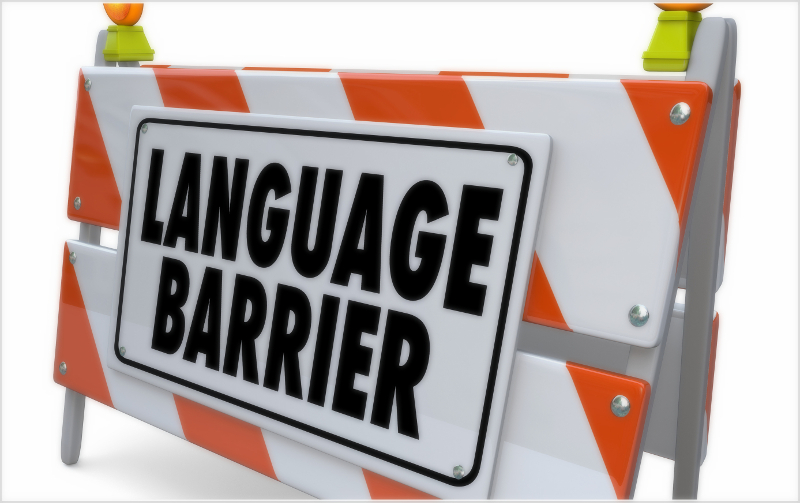 No matter your location, chances are that you are surrounded by an underrepresented population of people in need of legal services. Large cities and small towns alike are experiencing a growth in Hispanic communities and undocumented or not, they have legal needs that far exceed those of just immigration.
No matter your location, chances are that you are surrounded by an underrepresented population of people in need of legal services. Large cities and small towns alike are experiencing a growth in Hispanic communities and undocumented or not, they have legal needs that far exceed those of just immigration.
Unless you are actively looking for these communities you may not even realize to the extent they are present in your area. These are families that experience marriage and custody issues, these are workers that have employment and injury-related issues, and these are entrepreneurs that have business formation needs. In fact, due to language barriers, more trivial matters such as traffic tickets and ordinance violations are areas of concern for them as well.
“But I don’t speak Spanish, how can I assist these clients?”
- Hispanic communities are underrepresented in two ways; first there is a lack of Spanish-speaking attorneys, and second, they are more vulnerable to over-pricing and lower quality services. While dealing with a Spanish-speaking attorney is obviously a preferred comfort for Hispanic clients, even more preferred is to have an attorney who will provide quality services at a fair price. So, continue to be that lawyer who is fair and honest and you may just get a knock on the door by someone who has been treated poorly by another lawyer one too many times.
- Find a Spanish-speaking attorney who doesn’t practice in your area of law and have him co-counsel. It will be a learning experience for them and in return you will get your translation needs met.
- Many Hispanic residents have been in the United States for many many years and actually speak English quite well. If they don’t personally, many have family members who do speak English and they will bring that person along to translate when meeting with their attorney.
- Hire a law clerk or paralegal who is bilingual and have them be more involved with your Hispanic clients. If your practice begins to grow you may consider hiring a bilingual associate.
- Learn Spanish! It is never too late to learn a foreign language. It takes time and patience, but if you made it through law school, you already possess the work ethic and dedication to learn a language. Start taking your vacations to Spanish-speaking countries, make friends with a Spanish speaker, take a class, download a language learning app or buy some computer software. If you still have 10, 20, or 30 years left of practicing law in front of you, think of the benefits that will come from adding a foreign language to your skill set.
As you begin to grow your Hispanic client base, keep in mind that many areas of law do intersect with immigration law, so the potential effect your case may have on the client’s current or future immigration options should be discussed with an immigration lawyer. Immigration attorneys tend to handle some criminal law but other than that will steer clear of other areas of the law and may be a great resource to you as you begin to expand your practice.
“How can I start to grow my Hispanic client base?”
- It is important that you let other attorneys know that you are now offering your services to Spanish-speaking clients. The more people that know your plans, the more likely you are to get some referrals.
- Update your website, create a second set of business cards, and consider marketing opportunities that will target the Hispanic population. Many cities have Spanish radio stations, Spanish newspapers, and Spanish calendars that will get you access to the Hispanic population in your area.
- Hispanic clients are an excellent source of referrals. Make it a point to ask them to refer their family, friends, and co-workers to you for any legal needs. Your Hispanic client base will grow on its own as you provide great service.
- Eat at a Mexican restaurant once a week and leave a business card with your waiter, introduce yourself and let them know what services your practice offers.
- Don’t be afraid to try and put yourself out there. There will be times when communication is difficult but there are ways to ensure you understand what the client’s wishes are and you are able to provide quality representation.
If you are looking to grow your client base and to expand your practice, there is an opportunity in serving the Hispanic population. If you don’t fill the need for quality legal representation for this group, someone else will. By the way, find and replace ‘Spanish’ in this post with any other language and most of these same ideas and tips still apply and will provide you with additional opportunities to grow.






















i work with Chinese, Cambodian, East Indian, Korean, and middle eastern clients, among others. I’ve been wondering about ways to reach out to these communities for small business and landlord issues. I do get referrals by word of mouth, but are there any other ideas?